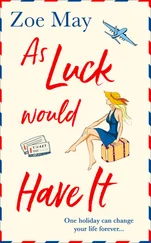A couple of nights later Visagie gave Mercia a lecture on Adam Small, whom he thought to be wrongly dismissed by the commissars of culture. Take Kanna hy kô hystoe he said, no less pertinent to the struggle than the banned Dennis Brutus’s resistance poems. He urged her to read it. Writing in Kaaps, he said, was the way forward to claiming their indigenous culture and valuing their roots. He gave her a dramatic rendering of
en Moses was ’n hakkelaar
ja Moses was ’n stamelaar
en Moses was ’n moordenaar
maar God was in sy elke aar.
Mercia thought of the slim book in a brown paper bag hurriedly swept up by Bella on her way out to meet her cousin. She waited for Bella to appear for breakfast and repeated what she could remember of Moses the stammerer, Moses the murderer. Bella blanched, put down her half-eaten boerewors roll to stare in amazement. No, she shrieked, it can’t be, and they fell upon each other with laughter.
Now the burly security guard dressed up in his paramilitary uniform and patting the gun in its holster looks up from his cell phone with incredulity.
That is the code, isn’t it? Mercia says.
He laughs. Yes, man, but it’s mos also my name, so for a second I thought you making fun of me.
It’s the name of a famous bullshitter, so just you keep on the straight and narrow, she jests, wagging a finger.
The man does not leave before telling her gruesome tales of attacks on lone women.
And what makes you think I’m alone? she bluffs.
He taps his nose and leaves.
Mercia shuts the door, relieved to be in Bella’s lovely house. She laughs out loud at the memory of Cedric Visagie as the two women turned up together for the next date. How she marveled at his composure. No more than a flash of panic slid across his handsome face before he explained that his job was to recruit both of them. It was simply the way in which the revolutionary movement at times had to achieve its aims. They were clearly not ready for the sacrifices demanded in those difficult times.
Heavens, how they laughed. But Visagie called after them all the same, Don’t forget to read Kanna .
Mercia finds it difficult to fall asleep in Bella’s house. She cannot rid herself of Jake’s disclosures, of the injustice done to him. It is on Jake that she must focus. When she drifts off momentarily, she is assailed by nightmares, by lewd images of Nicholas. She wakes up screaming with an image of her own clubbed head, of blood trickling into her gaping handbag, of her father looking on.
Mercia finds Bella’s old dressing gown; she will not go back to bed. She opens the file on her desktop — Home. Might it not help, as the therapists say, to write up the grim story? If Mercia has no pretensions as a writer, no aspirations to write stories, might a plain telling, a brief account in visible black marks on an illumined screen, not do the trick? With one thing leading to another as is the case with writing — for she does not believe that the writing up of events can be any different in practice to critical writing — one story generating another, she may well find the distance, and thus clarity and the much needed compassion. Memoir might be a misnomer, but why, after all, has she returned from time to time to the file?
Mercia types the sentence: Nicholas Theophilus Murray was a good man, a decent man. She stops. She does not have the courage to bare her bosom to the screen. She shakes her hanging hands like a shiatsu masseuse so that the toxins might exit via her fingertips. If memoir prides itself on fidelity — for why else would one want to rake up the past? — has Mercia not also seen how an indulged memory grows fat and multiplies, spawning brand-new offspring? But there is no one to tell. Not Bella and not as much as a longing for Craig.
Mercia stares at the keyboard. This is a father-son story into which she has stumbled, nothing to do with her, and thus not fit for memoir. She cannot find the words; she would have to skirt around their story, around the father, and how then would she avoid the fiction that telling begets? Mercia wants nothing to do with artfulness; besides, having snaked its way into their lives, the thing must be laid to rest. It must not be given the chance to take another shape.
She shuts down the computer.
It may be madness, but there is nothing else to do. The decision to come to town has been impetuous; to return in the small hours may be equally rash, but Mercia knows that she has run away in cowardice, that she must return, go home right away to deal with Sylvie and the boy. They are her responsibility, her inheritance.
With Table Mountain now a ghostly cutout shape behind her, Mercia drives through the city’s silence to pick up the national road that will take her back home. She does not register tiredness; instead, the questions mill through her head:
What kind of person am I? What kind of woman am I? The answer cannot be refuted. The kind of person who finds it hard to think and feel beyond her own loss. The kind of woman who does not forgive another woman for being a victim. And should self-knowledge not bring release from such self-absorption? Apparently not. But for all her desire to remove herself from them, from her people, from the place of exile called home, she cannot, and it irks. Has she gone crazy, driving right back to that place? To that desert she had thought of as dead, but where like any suburban home swathed in shamefaced lace curtains blood has been racing and pounding, and boundaries have been ruthlessly trampled. Worse, more wicked, for offending in the veld — God’s own country, mythopoetic home of wholesomeness, home to kalkoentjies bursting blood red into a new vernal world, home of healthy, simple pleasures seasoned with the plentiful salt of this earth.
The schoolgirl’s song of spring echoes in her head: Al die kriekies kriek daar bu-ite, Elke springkaan spri-ing. Such Edenic pleasures at home, where simple people are supposed to live wholesome, frugal lives amongst frolicking crickets and harmless locusts. But there is no such thing as simple people. The good folk of Gray’s elegy have long since departed, doubly dead; besides, that knowledge, rich with the spoils of time, has neatly sidestepped the carnal. And Mercia should have known that bucolic innocence, the stuff of the pastoral, is refuted in country matters that blindly pursue their own carnal laws. The lamb with his fleece as white as snow is the issue of a thrusting ram, a tupped ewe. The coming of the Lamb of God — his mum up the duff.
Mercia glances at the speedometer. She must slow down. She must not think of it. But for all her years, she is a child. The concupiscence of the parent — let alone this, this business — it is not for the ears and the eyes of a child. Sylvie was a child. For all Mercia’s atheism, it is the word SIN that lodges itself in her thoughts. He, Nicholas, her father, has sinned against the girl whilst his God turned a blind eye. And the iniquity of the father will be visited upon the children until the third and fourth generation. Dear little Nicky’s burden — and rage engulfs her on behalf of the child. She may have thought of it as Old Testament nonsense, but how will the child avoid suffering his grandfather’s sin, the wrath of an unjust God?
At least Mercia has done with crying. She may feel relief at not having to tell Craig, but if he had still been there, would she have told him about the shame that now is hers? Could she tell anyone that this home has been burned to the ground, that she would rather choose to suffer the dark and icy north with its plentiful water for washing away the sin that now is hers? Ag, she resorts too readily to melodrama. Why bother with the idea of home, a notion that has been turned inside out, like an old garment in preparation for mending? Thank heavens there is no longer any need to explain herself or, as they piously say these days, the need to share. She says out loud, dipping her voice: Allow me to share my shame with you.
Читать дальше












